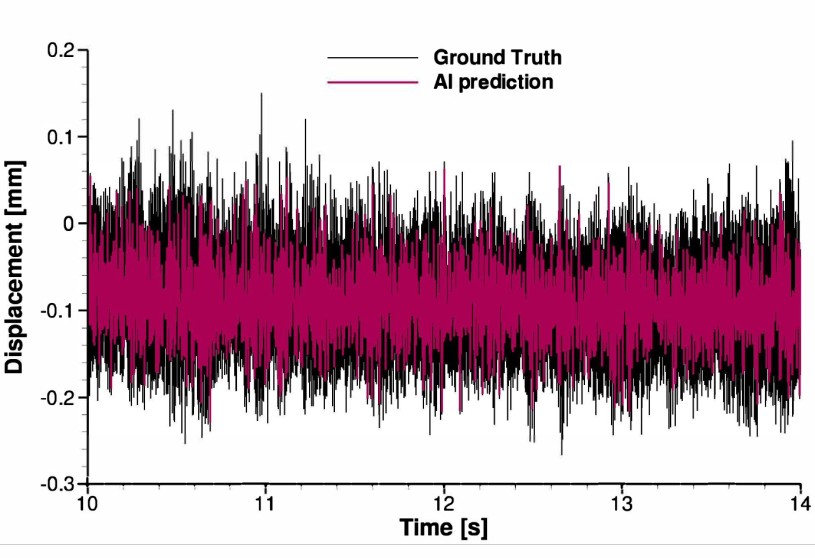
Press Release
An international research team led by the University of Nicosia, in collaboration with the Air Force Research Laboratory (AFRL), the German Aerospace Center (DLR), has developed an advanced Artificial Intelligence (AI) model that could transform technology for high-speed aircraft, space exploration, and beyond. The study, published in the prestigious Physics of Fluids journal and selected as an Editor’s Pick, demonstrates the power of cutting-edge AI in solving some of the most complex scientific challenges.
Using a groundbreaking Transformer deep learning model, the team investigated shock waves and the way they interact with flexible structures in extreme conditions, such as hypersonic flight. The AI model was trained on experimental data from specialised wind tunnel tests under conditions reaching Mach 5.3. The technology has immediate relevance for aerospace design, making vehicles safer, more efficient, and resilient at high speeds.

Beyond aerospace, the study has broad applications in fields such as renewable energy, automotive design, civil engineering, and even medicine, offering solutions for systems where fluids interact with flexible materials. For instance, it could help predict how buildings withstand hurricanes, how turbines optimise energy production, or how blood flows through arteries.
The project highlights the value of international collaboration, combining expertise from the U.S. Air Force Research Laboratories (AFRL) , one of Europe’s leading research centers (DLR), and the University of Nicosia.
"This work demonstrates AI's revolutionary potential in aerospace, mechanical engineering and beyond, strengthening global innovation efforts," explained Professor Dimitris Drikakis, who led the study.
"This breakthrough will pave the way for next-generation vehicles and technologies in both civilian and defence applications," Professor Drikakis concluded, highlighting the study's significant contribution to fluid-structure interaction modelling.
Access the published paper here: https://doi.org/10.1063/5.0267973
The accepted manuscript and more info are available here: https://www.unic.ac.cy/high-speed-fluid-structure-interaction-predictions-using-deep-learning-transformer-architecture/
For Further Information
Contact:
Professor Dimitris Drikakis
drikakis.d@unic.ac.cy
University of Nicosia































